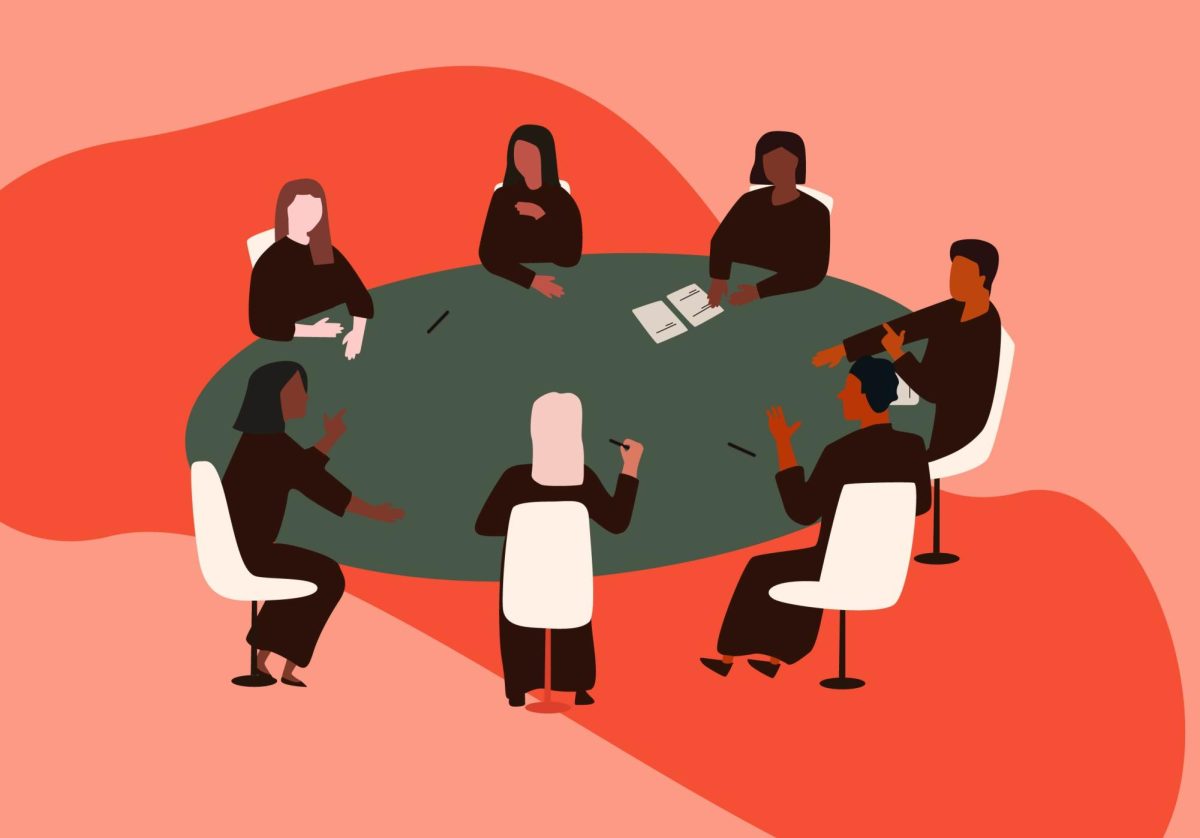Amelia: Hey Izzy! Do you know what I find Interesting? Women’s interest in true crime. I’ve never been invested in true crime media, but many of my friends are. What do you think?
Izzy: Hi Amy! I agree. There has been a big boom in the streaming service world with true crime. My mom and I somehow find it relaxing to sit down and turn on a true crime show once in a while.
Out of all the chaos happening in the world, this is the content that appeals to us. There’s a fascination with true crime stories of the days before better technology and forensics. I see it as learning about history and past crimes.
Amelia: That makes a lot of sense. It does concern me a bit that women obsess over the violence of the past when so much still exists today. For a lot of young women, the fear of experiencing harassment is real. Although in real life, the circumstances tend to be less sensational than the tales of mass murderers or secret killers spun in true crime stories.
Izzy: To defend true crime as purely entertainment would be immoral and unjustified to the countless victims — both men and women — featured. The families of those victims live with the killer’s heinous crime every day.
Humans are naturally drawn to the incomprehensible. There’s something terribly interesting about such people existing and acting upon the average person — a person like the viewer. Like any niche topic, true crime involves many cases. Somehow, digesting the foul mind of a killer fuels me with better preparation in a modern world where these things could happen to me.
Amelia: You’re right that it’s really important that these conversations are grounded in empathy for the victims and their families. However, with this emphasis on victims comes almost an obsession among women themselves being victimized.
I’m not convinced it is productive for women to constantly worry about how they could be brutalized. It’s obviously valuable for everyone to learn about precautions they can take to avoid experiencing violence, but we must also prioritize stopping the societal issues that lead to violence in the first place.
Izzy: I agree. 90% of murderers are men and nearly 44% of women in the U.S. have experienced sexual violence. These statistics fall in line with the most popular true crime cases. The documentaries demonstrate how the male perpetrators were manipulative and that any woman would have fallen for a charming, charismatic guy such as Ted Bundy. Your point about societal issues reminds me of Ted Bundy’s sentencing and the judge’s disappointment to see such a “bright,” promising lawyer like Bundy turn out the way he did.
Reactions like this rub me the wrong way. Being born a woman automatically means I need to learn to protect myself and avoid situations where I could end up in a Netflix documentary. It’s unfair and most certainly unproductive. I shouldn’t have to fear being alone in the comfort of my own home. Instead of true crime, I believe there should be other matters in place to educate and hold accountable those who don’t prioritize the safety of all people, not just women.
Amelia: The fact that a judge would choose to empathize with Ted Bundy over the dozens of women he murdered is horrifying and true crime as a medium can highlight such injustices. However, true crime content often spotlights a specific kind of victim.
To me, JonBenét Ramsey is the quintessential true crime victim — a wealthy, white girl who dies under mysterious circumstances. Lots of true crime perpetuates the phenomena of “missing white women syndrome,” where white women are given disproportionate media attention compared to women of color. Indigenous women, especially, are far more likely to go missing than white women, but I cannot think of one documentary or podcast that focuses on these women.
It’s a feedback loop. Brutalized white women are put under the spotlight by true crime and the white women who watch this content see themselves in the victims. They then center themselves in conversations about gendered violence, ignoring the reality that women of color are more likely to experience violence.
Izzy: The Indigenous women that go missing every year is devastating and, yes, I have never seen a documentary about these continuous crimes. The entertainment industry profits off of the unbelievable, such as the death of the wealthy and beautiful JonBenét Ramsey. However, I would not have known of her story if not for the documentaries about her.
Much of true crime, again, is from an earlier time when maybe my parents and grandparents would have recognized the ongoing fear the nation had when trying to catch a killer. The lack of cases featuring victims of color is undeniable and there needs to be more attention on them, especially as they continue to take place. With the surge in popularity in the genre, it’s all about money and fear-mongering.
Amelia: In general, we as a culture need to think critically about what the media presented to us is trying to say. Especially as life can feel so scary, I cannot blame anyone for enjoying the catharsis true crime can bring and the satisfaction that comes from feeling like you’re uncovering a mystery. After all, I love “Twin Peaks” as much as the next girl. But it’s also important that we ground ourselves in reality and do what we can to improve our criminal justice system and support victims.
Izzy: True crime certainly is an interesting outlet to educate yourself on the safety of your surroundings and personal life. This doesn’t mean fearing ever going out or forming relationships. Let’s be honest, that’s an unrealistic and completely ridiculous way to live. The documentaries are there for us to learn and enjoy; watching this genre doesn’t mean one thing or another about what kind of person you are.
It’s normal to be interested in taboo and unthinkable events. Expanding true crime to include more modern-day issues and changes within communities, such as ways to make nightlife feel less inevitable, would benefit the community and actually make women feel safer.














